SUMMARY
This is AI generated summarization, which may have errors. For context, always refer to the full article.

MANILA, Philippines – Giving gifts and showing family photos to employers can have “significant positive effects” on Filipino domestic workers abroad, a study showed.
The 3-year study conducted by the Overseas Workers Welfare Administration and the Asian Institute of Management (AIM) sought to test the impact of new modules for the Pre-departure Orientation Seminar (PDOS) and gain insight into how domestic workers and their families adjust to the overseas Filipino worker (OFW) life.
The team conducted at least 7,126 interviews on domestic workers and their families in the Philippines from 2014 to 2017. The results were announced in a conference held on Tuesday, October 24, at the AIM Conference Center.
The research team studied the cases of 2,000 first-time Filipino domestic workers in Hong Kong and Saudi Arabi, and the families they left behind.
Domestic workers are the largest category of land-based OFWs and are also the most vulnerable among migrant workers.
A good start?
Victoria Licuanan, one of the study’s chief investigators, said that they aimed to evaluate the impact of 4 low-cost information interventions – 3 of which are done during the PDOS and one after the OFW’s departure – and test if they can improve migrant welfare and financial decision making.
One of these interventions included asking a random group of domestic workers to give their new employers a gift – a pack of dried mangoes provided by the research team. They also asked domestic workers to bring a photo of their family and talk about them with their employer, if the latter initiates a conversation.
Another group of domestic workers received the standard PDOS.
The intervention is based on the premise that such acts may help humanize domestic workers who may be viewed as “machines” by their employers. The research also said that behavioral economics validates the “importance of first impressions in setting the context of a relationship.”
Of all the domestic workers who were asked to give a gift and share a family photo, 93% remembered it but only 66% did it.
The results showed that those who followed the gift plus photo intervention were treated better by their employers, as reported by the OFWs and their families, compared to those who didn’t. The gift-giving OFWs also had a more positive evaluation of their employers in the long term.
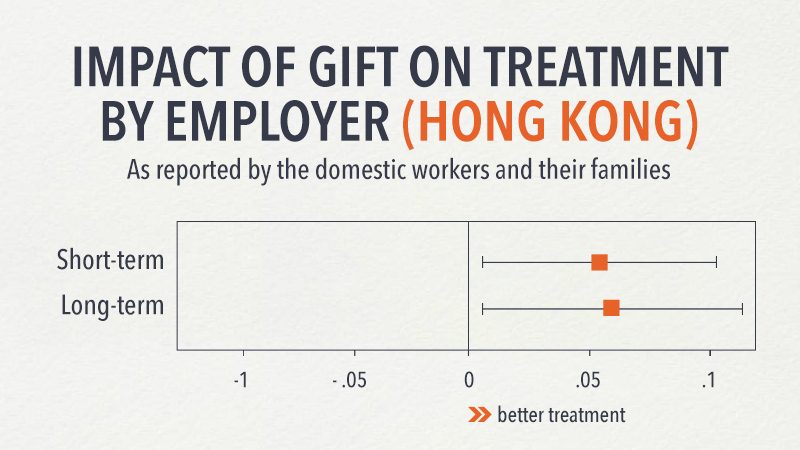
More also reported experiencing better working conditions in the case of the Hong Kong OFWs: getting enough food, getting a weekly rest day, and being allowed to leave the house.
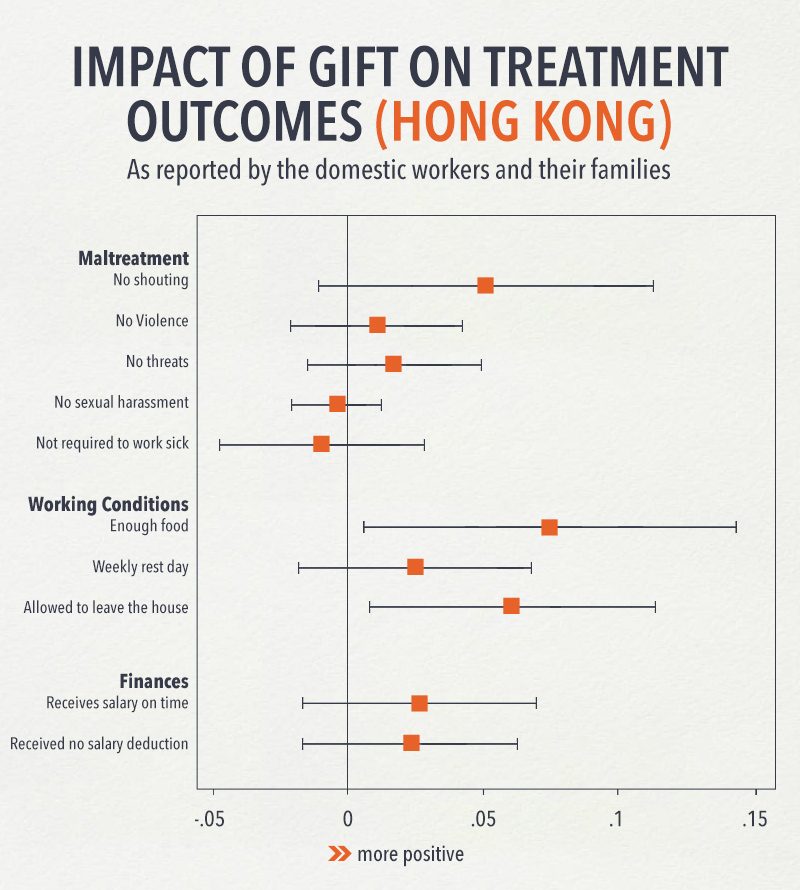
While the intervention didn’t make as much impact on the treatment of the domestic workers group in Saudi, the group reported fewer instances of sexual harassment and salary deductions.
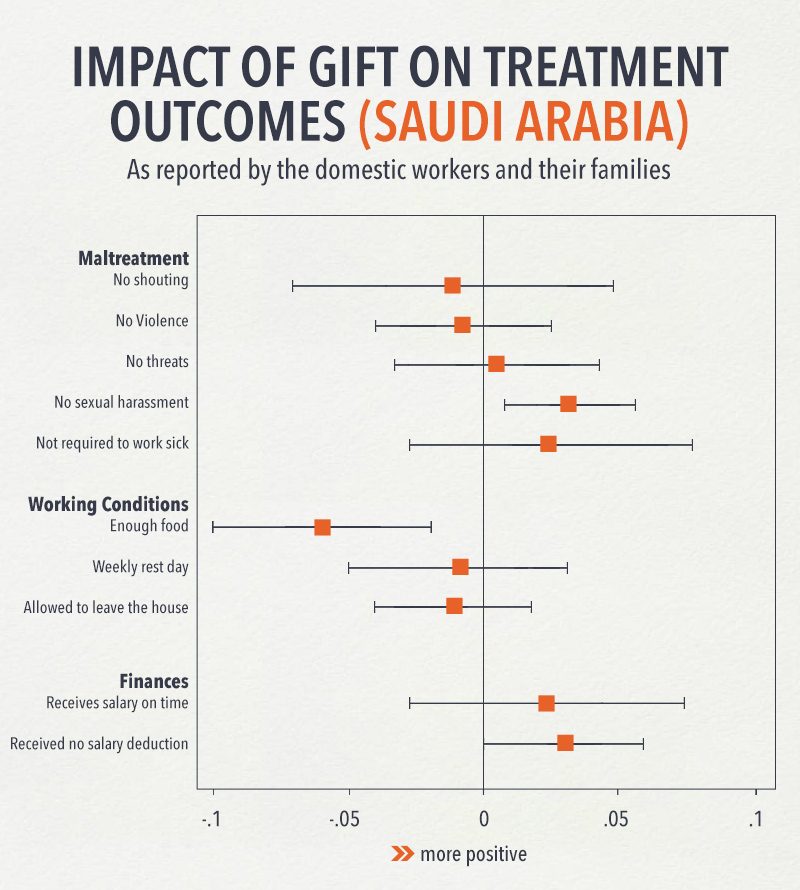
More of those who went through the intervention and their families, both for the Saudi Arabia and Hong Kong groups, also reported positive spillovers on their household.
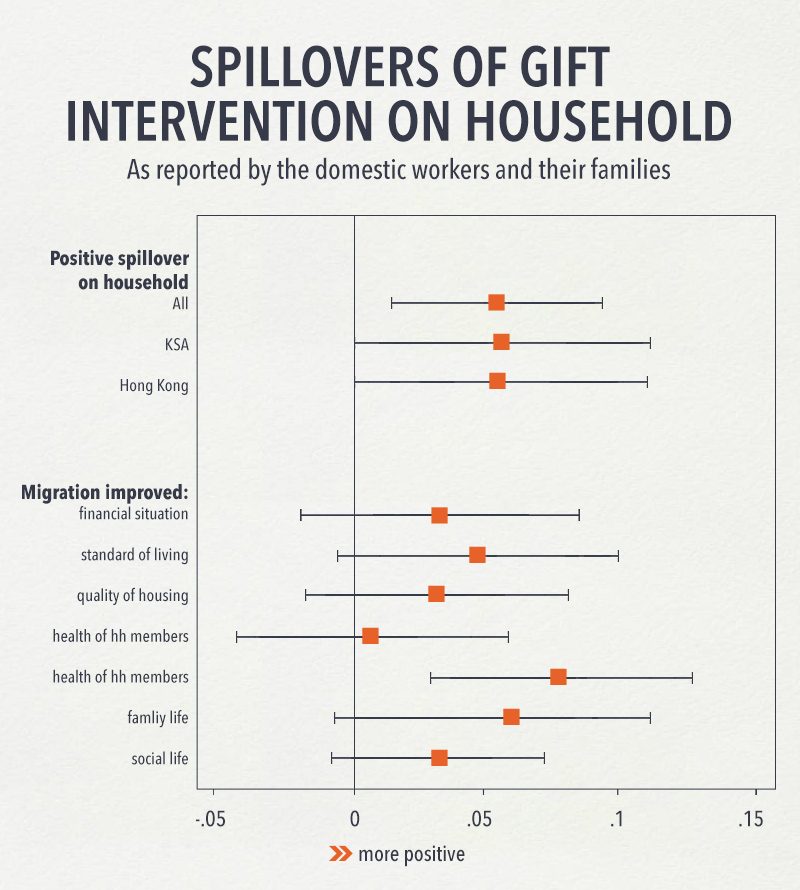
This shows that making a favorable first impression, in this case done by giving a gift, can have a significant and long term positive effect for some OFWs. A move as easy as “nudging” OFWs to do so may yield beneficial results, the study claims.
Other interventions
The research team also tried other interventions, including asking former domestic workers to share their personal experiences abroad with new OFWs, in hopes of improving their chances of getting better treatment from their employers.
Another intervention – aimed at improving decision-making on finances – was to let another group of domestic workers take a short and targeted financial literacy module, with trainers experienced in grassroots training and microfinance.
Six months after their departure abroad, the domestic workers were also sent regular reminders to save, via SMS, every 15 days.
All 3 interventions had little impact on both the welfare and saving habits of domestic workers.
While the financial literacy module increased the likelihood that domestic workers, especially those in Hong Kong, would open their own savings accounts, it had no effect on their total savings.
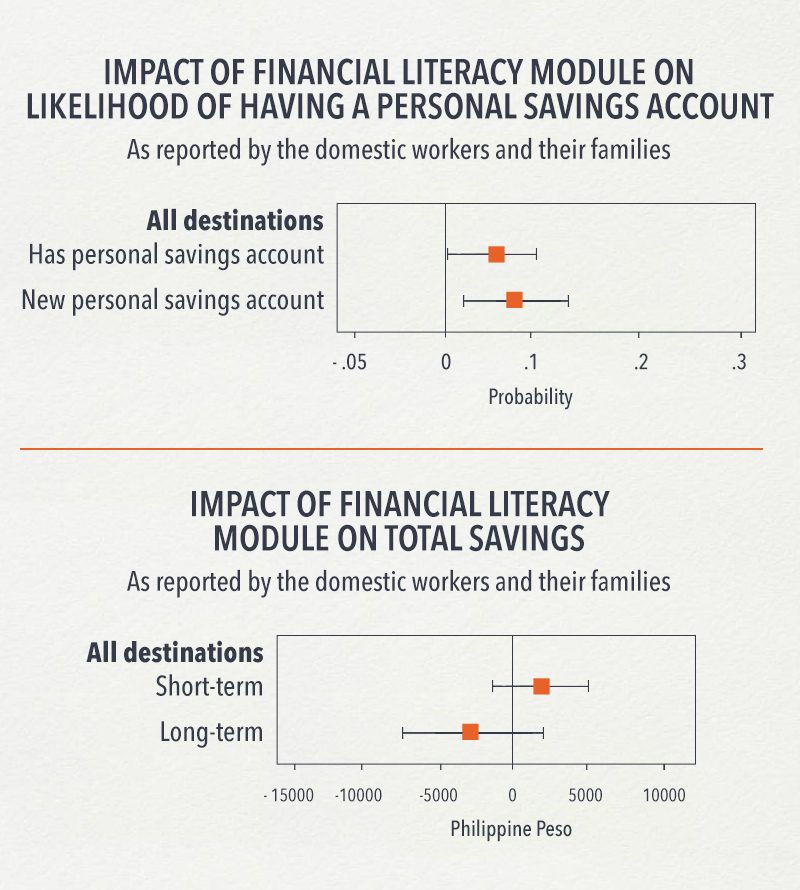
Saving reminders also didn’t work, as it proved difficult to maintain communication lines with the domestic workers. The attrition rate for this intervention dropped to only about 50%.
Licuanan said this shows that both the government and non-governmental organizations need to be more creative in training domestic workers, taking into consideration their changing needs over time. – Rappler.com
Add a comment
How does this make you feel?
There are no comments yet. Add your comment to start the conversation.